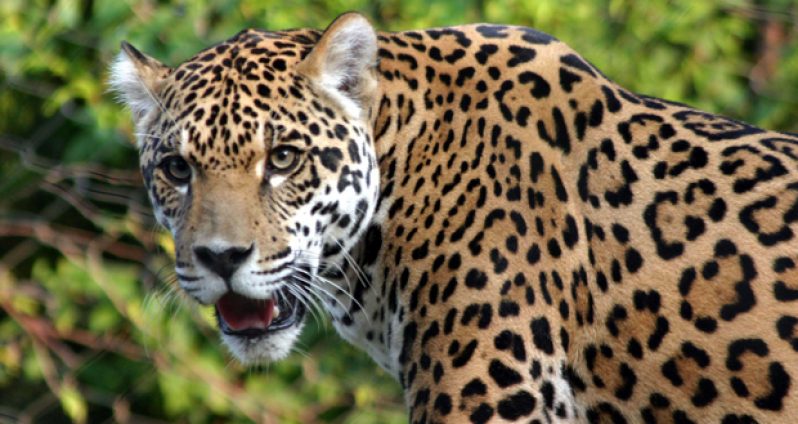GUYANA’s healthy wildlife population is a major tourist attraction and many a happy tourist has returned from the Iwokrama Reserve boasting of sighting a jaguar, our national animal.
The relative inaccessibility to the natural habitat of our wildlife populations offered much protection in the past and their populations thrived.

However, this is slowly changing as Guyana pursues its economic development with mining and forestry, both of which require access to such resources often located deep in our interior playing a significant role.
These roadways also enable easy access for community hunters, some of whom are employed fulltime to supply the mining and forestry camps with a regular supply of fresh meat, as well as recreational hunters with custom-designed vehicles and sophisticated hunting equipment.
Guyana’s commitment to sustainable development through our Low Carbon Development Strategy (LCDS) includes setting aside areas for biodiversity conservation and the protected-areas system comprising Kaieteur, Iwokrama, Kanuku Mountains and Shell Beach offer some protection to our wildlife populations. Connectivity of these sites in the future can significantly enhance such protection.
The Guyana Forestry Commission (GFC) has also conformed to the LCDS condition of limited deforestation by enabling regulations for sustainable harvesting, which also offers protection to wildlife habitats.
Most encouraging is the recent passage of Guyana’s Wildlife Conservation and Management Regulations, which will be implemented through a new Wildlife Management Department in the Environmental Protection Agency with support as necessary from other regulatory agencies. The protocols governing conservation and management of our wildlife are clearly laid out as are the protected species, which should not be harvested or hunted.
As most wildlife can be found in the backyards of hinterland communities where local wildlife rangers already possess the capacity for monitoring, it is hoped that they can be empowered to enforce our wildlife regulations on the ground.
Our wildlife populations depend on us for their survival, so let us all get onboard to ensure they are around for generations to come.




.png)









